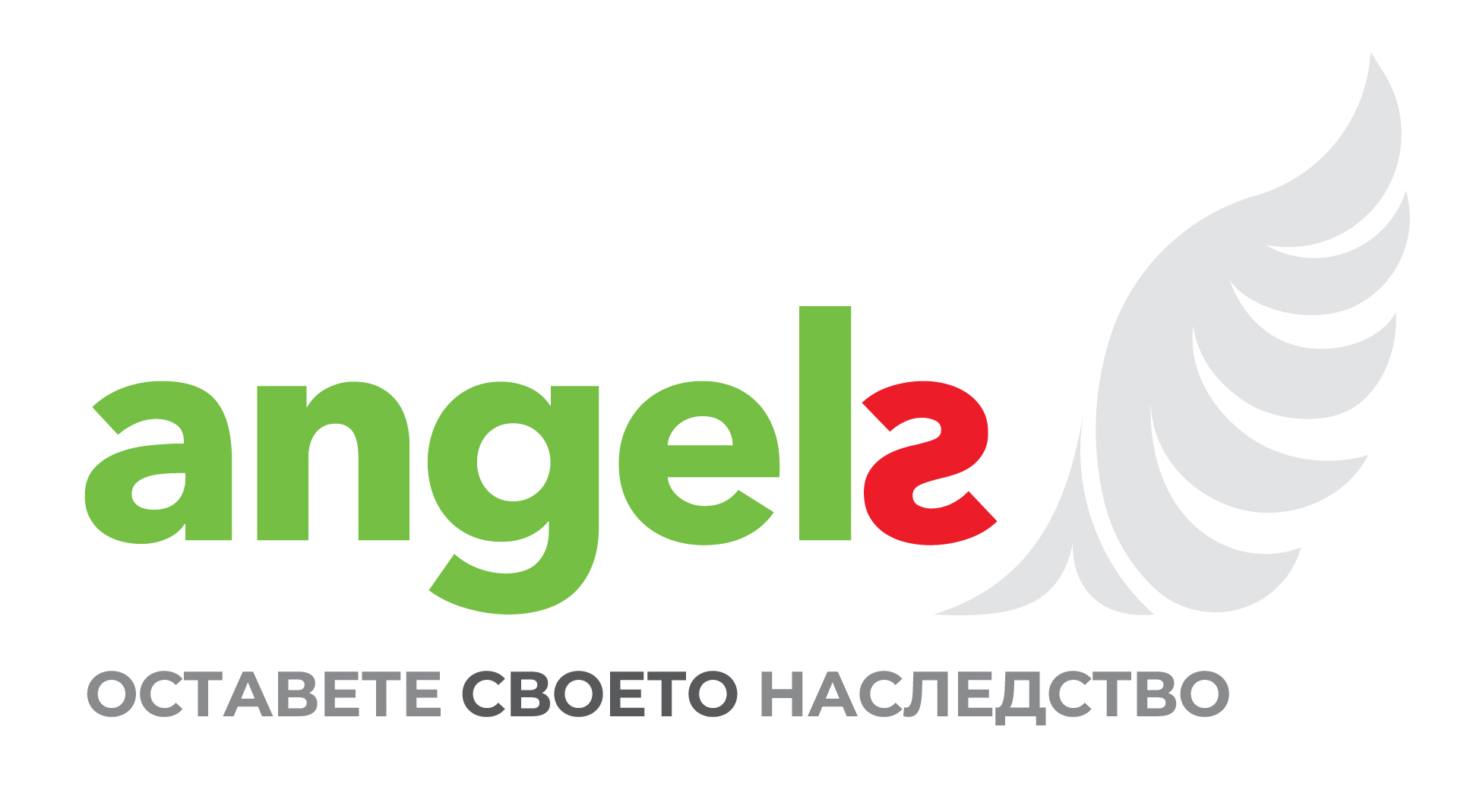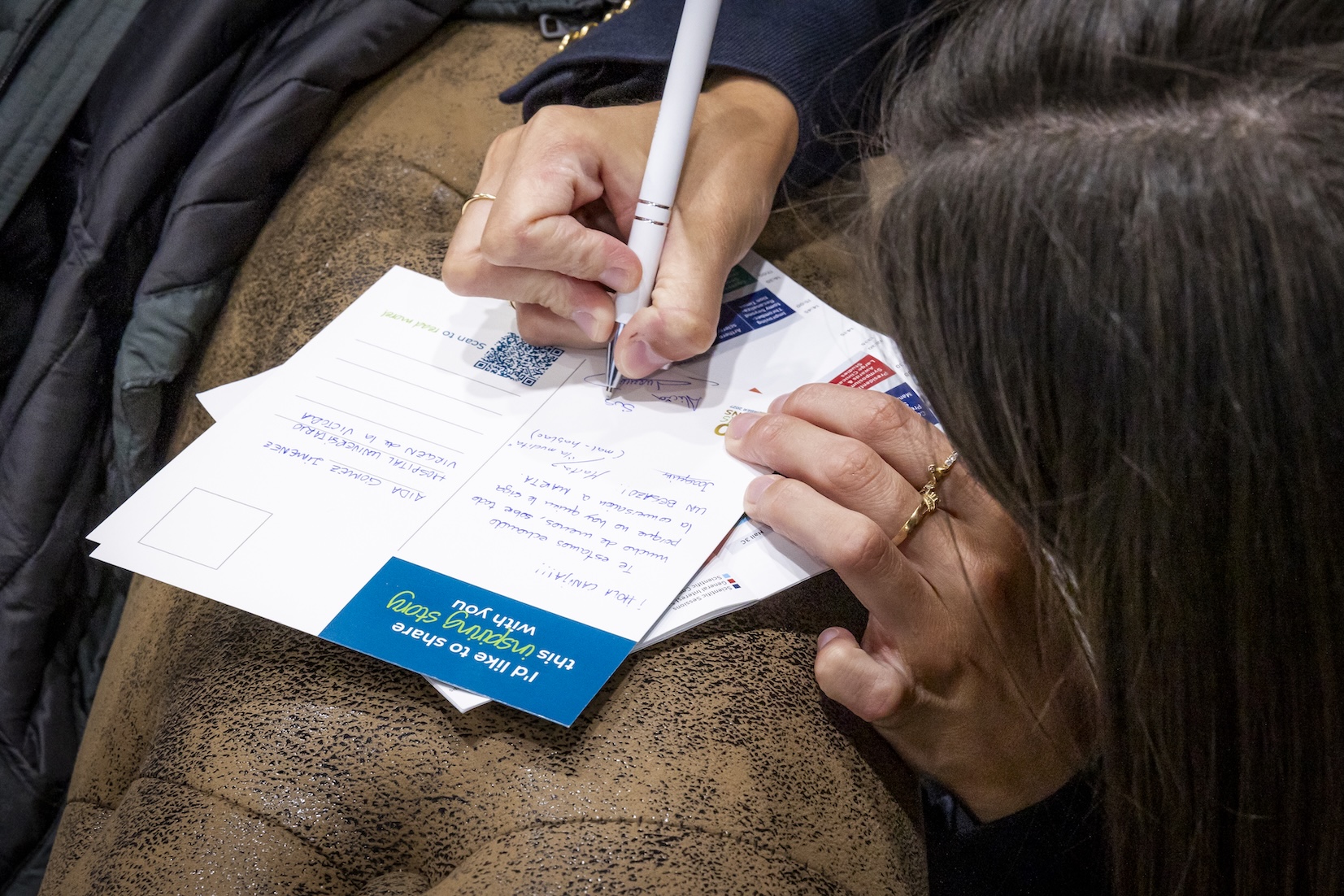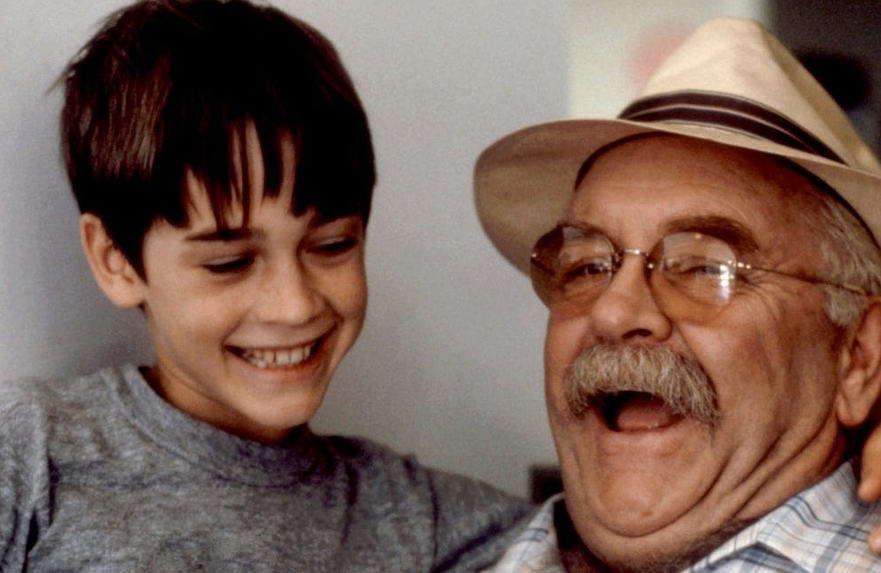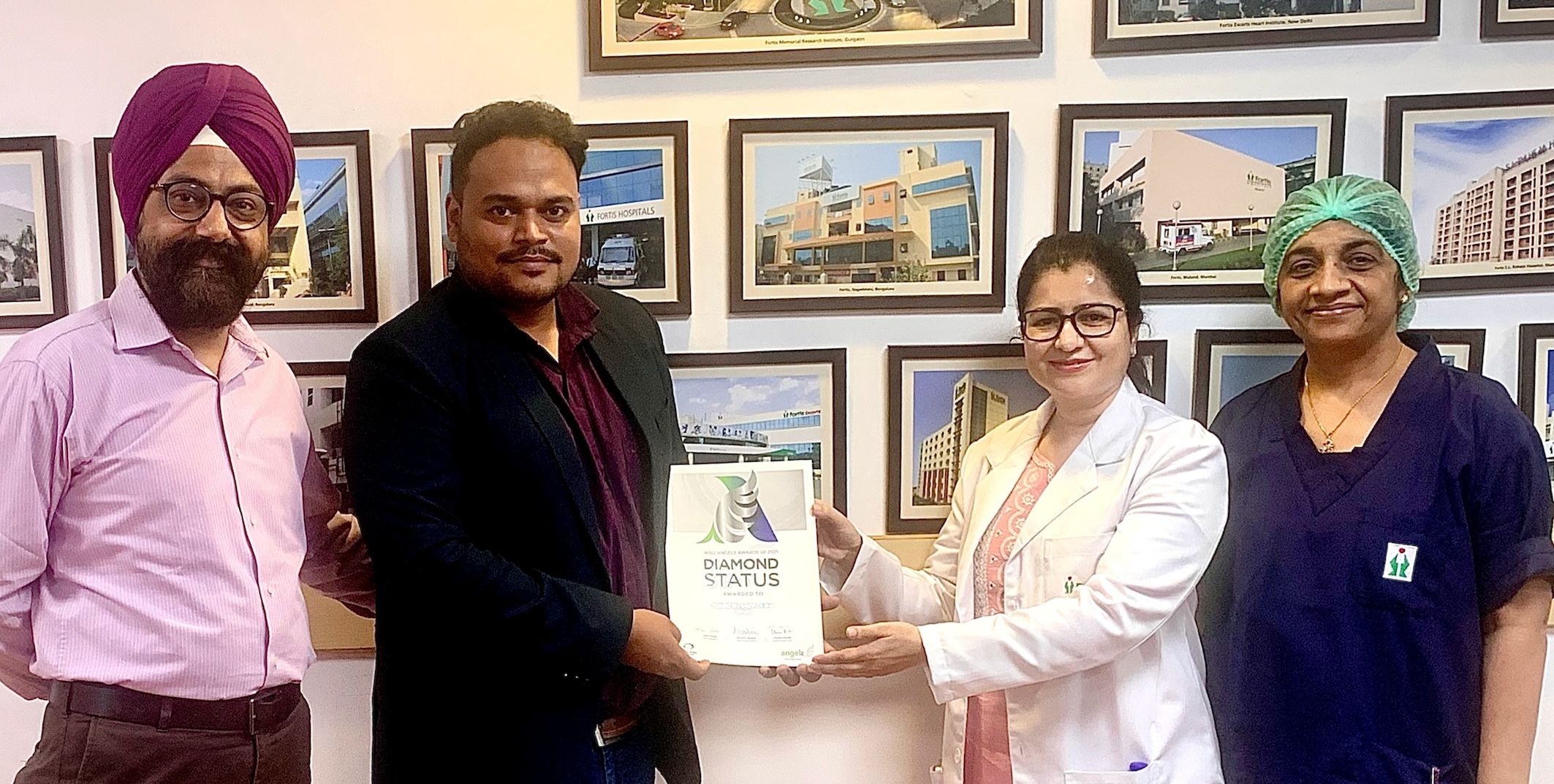
Болница Fortis Noida се намира в щата Утар Прадеш, който е в съседство с Източен Делхи, известен също като Транс Ямуна, административен район на Националната столична територия (NCT) на Делхи, Индия. Според преброяването от 2011 г. Източен Делхи е дом на разнообразно население от над 1,7 милиона души. Той споделя граница с Утар Прадеш, един от най-населените щати на Индия.
Една от 28-те болници в болничната мрежа Fortis Hospital Noida е всеобхватен център с капацитет за лечение на голям брой пациенти с инсулт. В продължение на 15 години тя спечели доверието на населението в района. Визията на неговия отделение по неврология е да осигури състрадателна грижа за пациент, заедно с клинично съвършенство, с цел „Спасяване и обогатяване на живота“.
Angels консултант“ д-р Тарун Гаутам се свърза с тази болница през 2019 г. Той направи първоначално наблюдение и проведе среща за ориентиране с ключови заинтересовани страни, за да разбере техните предизвикателства и очаквания. Договорени са планове за среща за симулация и разбор, а в началото на 2020 г. болницата се регистрира на уебсайта на „Ангели“ под ръководството на директора по неврология д-р Jyoti Bala Sharma.
Това беше добро начало, но природата имаше други идеи. Когато пандемията и затварянето сложиха край на всички наши планове, екипът на „Ангели“ започна да работи на принципа, че когато не ловувате, трябва да изостряте брадата си. Установихме виртуален контакт с болницата и започнахме програма за онлайн обучение, набирайки 135 здравни специалисти, включително 77 медицински сестри на уебсайта на „Ангели“. Въпреки прекъсването, причинено от пандемията, 60 медицински сестри от болница Fortis Noida получиха сертификат за медицинска сестра за инсулт.
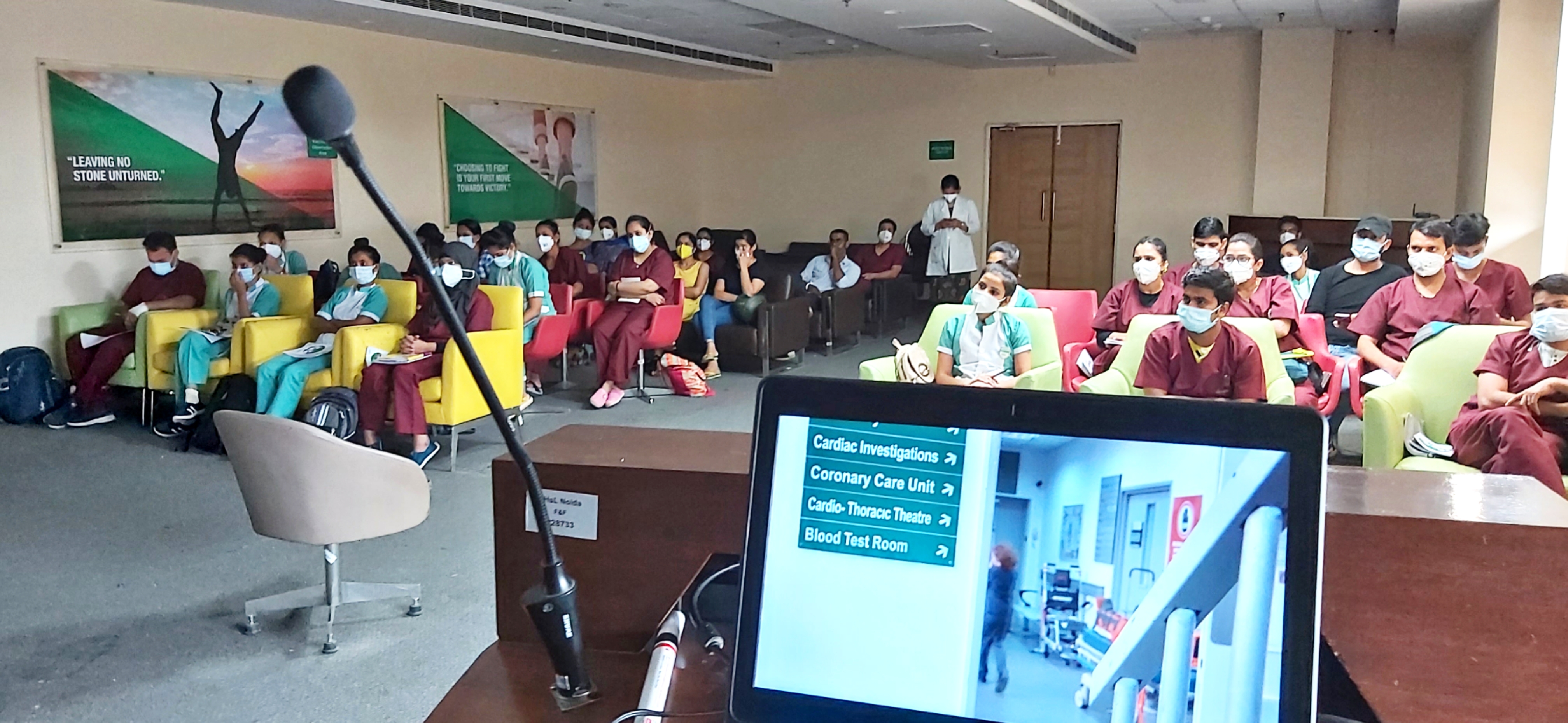
Бавно слънцето отново изгрява. Пандемията от Covid отшумява и един нов свят чака с отворени обятия, за да прегърне ново бъдеще. През февруари 2021 г. екипът на „Ангели“ посети отново болницата „Фортис Нойда“ и стигна до мястото, откъдето бяхме тръгнали. Въпреки продължаващия страх и несигурност, първата ни симулация беше планирана за 24 февруари 2021. Отговорът беше непреодолим – сякаш това беше най-очакваната среща между хората.
Докладът от симулацията показа, че екипът на Fortis е постигнал време от вратата до лечението (DTT) от 50 минути. Въпреки че всички бяха щастливи, че постигнаха време под 60 минути, д-р Джиоти не беше доволен. Перфекционистка, която винаги прави най-доброто от себе си, тя иска да намали още повече времето си за DTT. В името на големия брой пациенти с инсулт, лекувани в нейната болница, д-р Джиоти искаше да направи качеството на грижите за инсулт приоритет. Освен това, нейният отделение искаше да живее според тяхната визия и репутация за съвършенство.
По време на съвместна сесия за брейнсторминг, екипът по инсулт заедно с д-р Джиоти и „Ангели“ изучава симулационните разбори и параметрите, предоставени от RES-Q, с цел идентифициране на закъсненията на пътеката. Екипът се ангажира да използва инструменти на „Ангели“, включително списъци за проверка, чантата за инсулт и плаката от Хелзинки, за да повиши стандарта на лечение и под ръководството на д-р Джиоти се ангажира с внедряването с нулево отклонение. За да се постигне договорената цел за DTT от 25 минути, екипът ще получи обучение, което включва хиперакутния път, WOW CT и NIHSS, със следващата оценка, която трябва да се извърши след шест месеца.
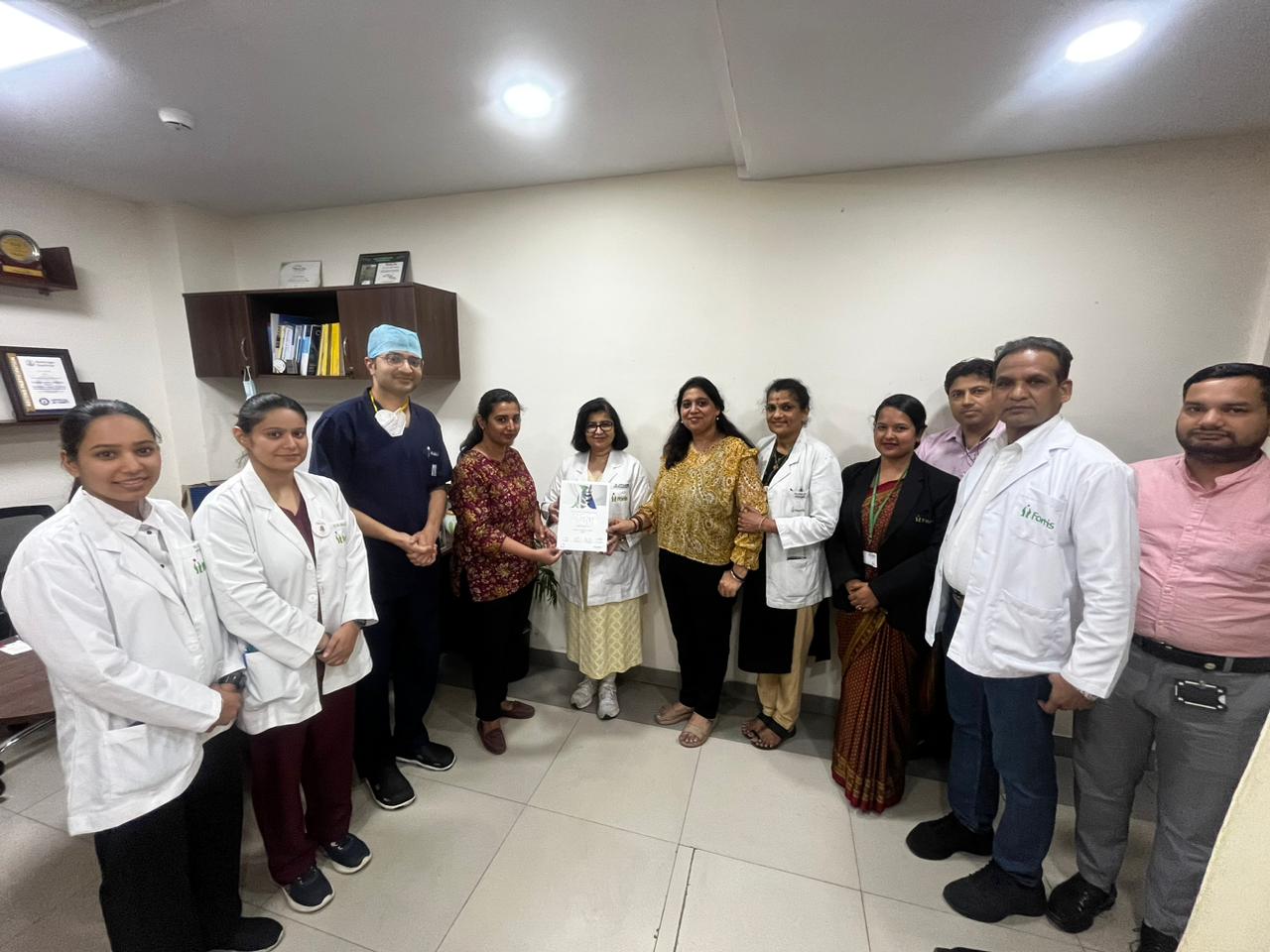
С всички, приведени в съответствие с общата цел, целите и консенсуса, екипът на Fortis започна да събира данните за пациент инсулт, за да събере доказателства за точно кои области трябва да подобрят. Успехът пристигна бързо, тъй като Болница „Фортис“ Нойда получи първата си диамантена награда „Ангели“ на WSO за Q1 на 2021 г.
Втората вълна на Covid-19 донесе повече уроци. Болницата е получила повишен брой пациенти с остър инсулт и благодарение на стабилния скрининг за Covid, екипът за инсулт е станал свидетел на намаляване на средното време за DTT до 25 минути. Скоростта на реканализация се увеличи, както и броят на механичните тромбектомии, които помогнаха за спасяването на критични животи. Подобреният протокол и мониторингът на данните за RES-Q дават резултати.
По-нататъшен анализ показа, че има място за подобрение в пост-неотложна помощ, по-специално по отношение на скрининга за дисфагия. С обучението и помощта на координатора по неврология г-жа Атира Харейндран, скринингът от медицински сестри на дежурен етап води до по-добри резултати след тромболиза при пациенти с остър инсулт.
Като превантивна мярка беше поставен акцент върху консултирането на хронични пациенти в сърдечния отделение за BEFAST. Това от своя страна ще доведе до достигане на повече пациенти до болницата в рамките на прозореца за лечение и спасяване на повече животи.
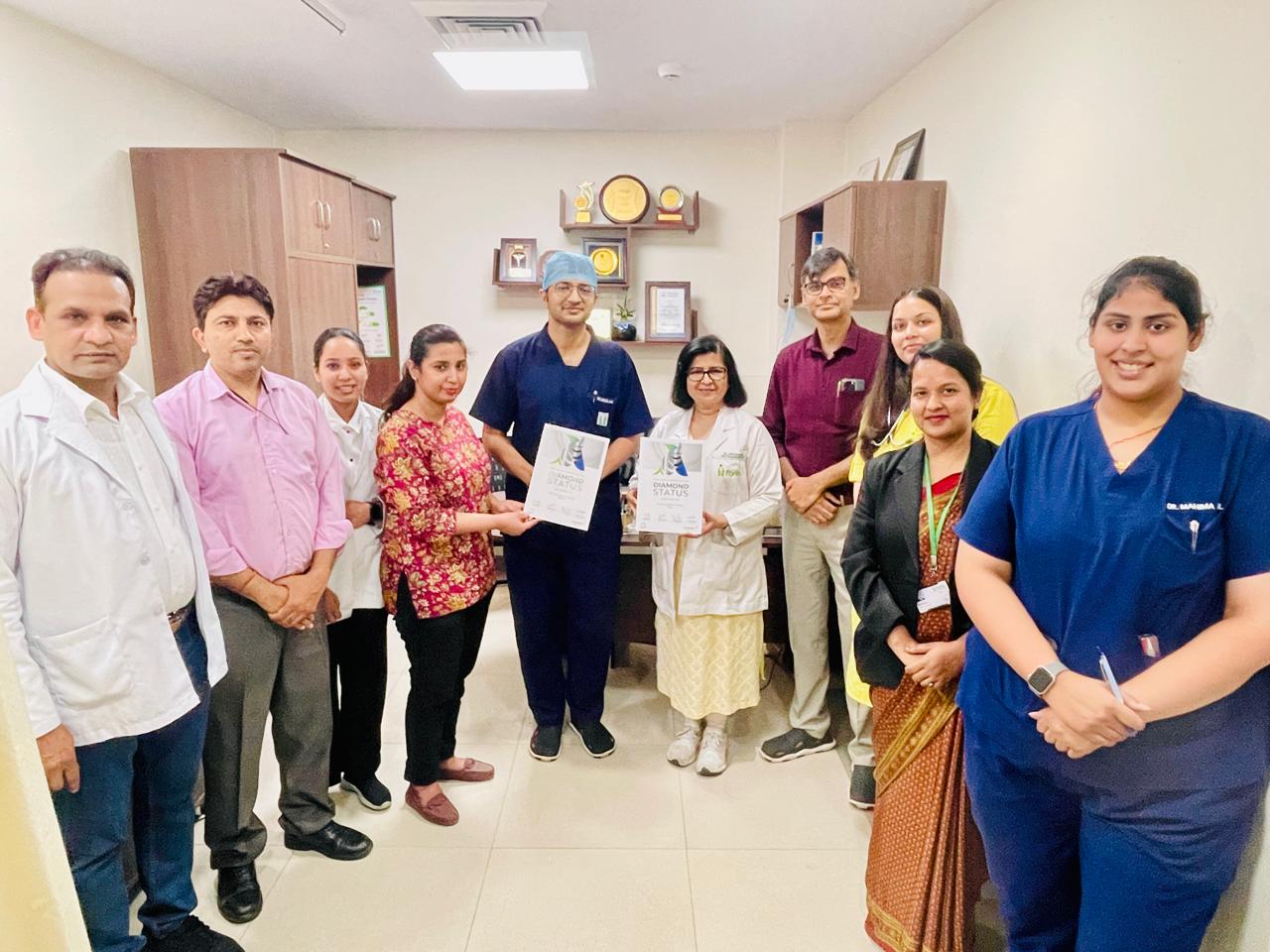
Промяната е неизбежна както за нас, така и за болницата, но нашето наследство във Fortis Hospital Noida продължава. Откакто д-р Тарун стана ръководител на екип за Северна и Източна Индия, Angels консултант“ Deepti Sawhney продължи да работи с болницата и благодарение на споделянето на знания, спазването на протокола и непрекъснатото наблюдение и подобряване, болницата Fortis достигна диамантен статус осем пъти от 2020 г. насам.
Сега е време да погледнем напред. С новата стратегия за 100-те региона на „Ангели“ има възможност да се използва експертният опит във Fortis Hospital Noida на по-широка сцена. Обсъжда се модел на хъб и говорител, включващ периферните болници, които са първите точки за насочване на пациенти с инсулт. Целта е да се намалят междуболничните закъснения, за да се гарантира, че повече пациенти достигат лечението навреме. Заедно можем да дадем на живота втори шанс!
